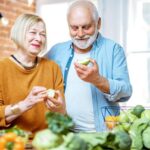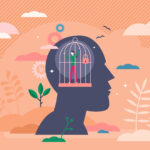
15 Apr Movement Matters: Does Tragedy have a Silver Lining?
Perhaps it’s far too early to ask this question. The spread of the COVID-19 virus has been rapid and devastating. In just a month we have lost family, friends, first responders, health care workers, dignitaries, and noted celebrities. Families have suffered through illness, death, and the spectre of economic ruin. The news coverage and social media speculation have been sources of both comfort and angst. Social distancing has led to social isolation. Our world has been turned upside down. Is there any reason to think that we could possibly find lessons of hope and inspiration as the numbers of sick and dead climb, as businesses close, as we are gripped with fear for ourselves and those we love? I would say yes – if we want to.
As I am writing this, the hope and fear is that the peak of the virus’ toll is perhaps days away. Even then, we will continue to see pockets of outbreak around the country for the foreseeable future. At some point we will need to adjust to a new normal. How we get to that point, and how we adjust, may well define us for years to come. So, what are the lessons that we can focus on at this time? Here is what I am thinking:
- More than ever we are embracing technology to transcend social distancing to stay in contact with family and friends. Pancake breakfasts on Zoom, puzzle night, drinks with friends, Facetime with Grandma, and countless other touch-points to both entertain us and to remind ourselves that the people whom we care about are still out there.
- Mending fences across the time/space continuum. It turns out that for many, social isolation leads to the need for resolving old disputes and hitting the reset button on lost or broken relationships. Maybe it’s due to loneliness, maybe the search for old friends who really ‘get us,’ or possibly out of boredom. But hey, extending an olive branch does not require justification.
- Outpouring of respect and gratitude for our first responders and medical professionals on the front lines. These folks are literally risking their lives, now more than ever, to ensure our safety and to restore the health of their patients.
- Compassion for our family, friends, and neighbors who have lost wages, benefits, and possibly their jobs for reasons beyond their control.
- Sending cards and letters has never been more important. We all share concern for the invisible thousands of folks who are truly isolated. Like many of our elderly family and friends, my mom is isolated without the technical savvy or wherewithal to open her walls beyond her physical space. Sending cards and letters may be the best low-tech way to reach our senior friends and family.
- Gratitude for restaurants, hardware stores, grocery stores, markets, truck stops, and gas stations and their employees who stay open to serve us, comfort us, give us a sense of ‘normalcy.’
- Time to reflect on the fact that a simpler life may be a gift that we have largely ignored in our culture. While our somewhat isolated living can create loneliness, it can also remind us that we are stronger and more resilient than we would have guessed.
- I would suspect that without many of the distractions of work, school, and after hours activities, our homes and lawns will look spectacular this summer!
- A host of online services have emerged to promote, cajole, and guide us through valuable and stress reducing exercise, yoga, Pilates, guided relaxation, and stress reduction.
- The resurgence of Badminton!
- Valuing time outdoors: together or alone. Whether with family, with appropriate distancing from friends, or as a solo endeavor the sidewalks and pathways of Indianapolis have never been busier.
- There is an enormous capacity for kindness in our community.
- And, if nothing else, you will soon be taking note of the real color of our neighbors’ hair!
I am sure that living through this experience has been difficult on us all, and we are all looking forward to the safe resumption of activities and events that will provide some spice to our relatively spartan existence. However, this shared loss of normalcy can result in a resurgent sense of community if we let it. We can continue to practice social distancing and fastidious cleanliness even as we extend ourselves to others in acts of kindness big and small, catch up with friends and family to strengthen relationships, and use some of your ‘extra’ time to pursue whatever individual improvement projects that we may have at hand.
Finally, if your any of your projects include exercise and increased activity, and if you are impeded in any way by pain or loss of mobility, contact us for a screening or assessment, either in person or via Telehealth. As we’ve previously shared, physical therapy is considered an essential service in this difficult time, and we continue to serve our patients both at our offices and via remote appointments. As so many have said before, we’re all in this together.
Best, Brian Pease




